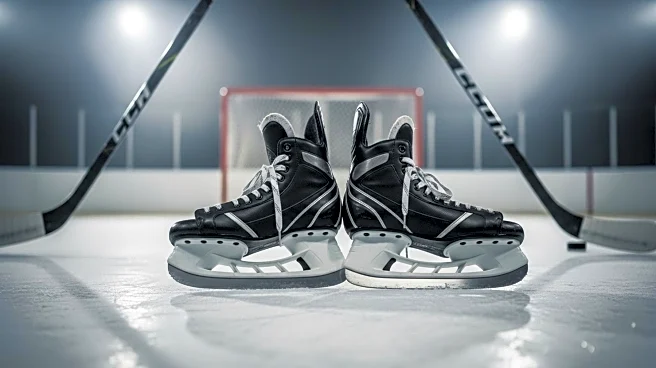What is the story about?
What's Happening?
As the NHL regular season is set to begin on October 7, players reflect on the outcomes of last season. According to a recent report, only one player expressed satisfaction with how their season ended last year. This sentiment highlights the competitive nature of the league and the high expectations players have for their performance. The preseason has already showcased a variety of goals and plays, setting the stage for what promises to be an exciting season. Teams are gearing up for the regular season, with players eager to improve upon last year's results and make a strong start.
Why It's Important?
The mixed sentiments among players regarding last season's outcomes underscore the pressure and expectations in professional sports. As the new season approaches, teams and players are motivated to perform better, which could lead to heightened competition and more engaging games for fans. The NHL's ability to maintain high levels of competition and excitement is crucial for sustaining fan interest and driving revenue through ticket sales, merchandise, and broadcasting rights. The league's focus on improving player performance and team dynamics is essential for its continued success and growth.
What's Next?
With the regular season starting soon, teams will focus on refining their strategies and improving player performance. Coaches and management will analyze preseason games to make necessary adjustments and ensure their teams are ready for the challenges ahead. Fans can expect intense matchups and thrilling plays as players strive to meet their personal and team goals. The league will continue to monitor player sentiments and performance, potentially implementing changes to enhance the overall experience for players and fans alike.
Beyond the Headlines
The dissatisfaction expressed by players regarding last season's outcomes may prompt discussions about mental health and support systems within professional sports. As athletes face immense pressure to perform, leagues may need to consider additional resources to support player well-being. This focus on mental health could lead to broader conversations about the importance of psychological support in sports, influencing policies and practices across various leagues.
















